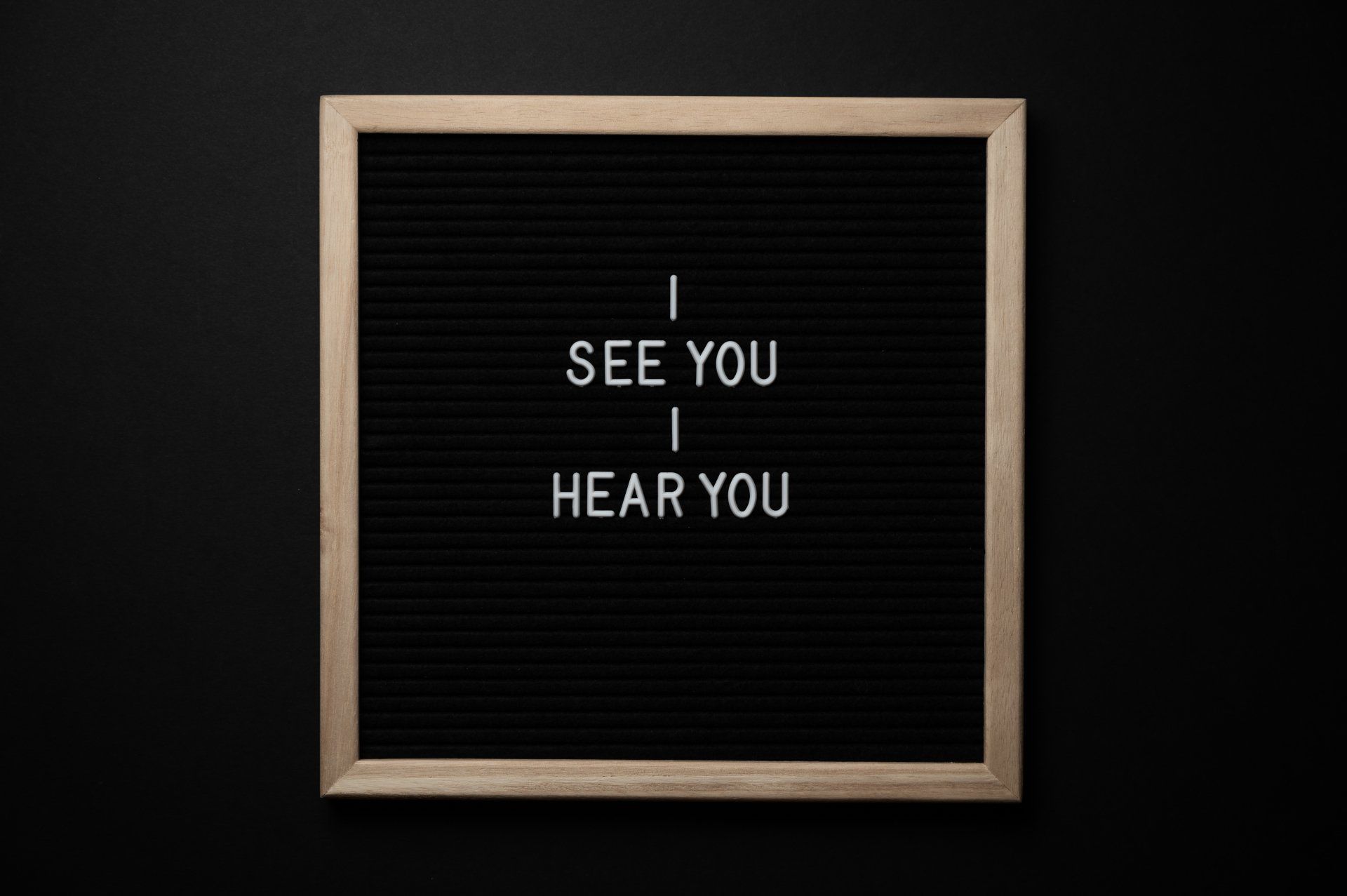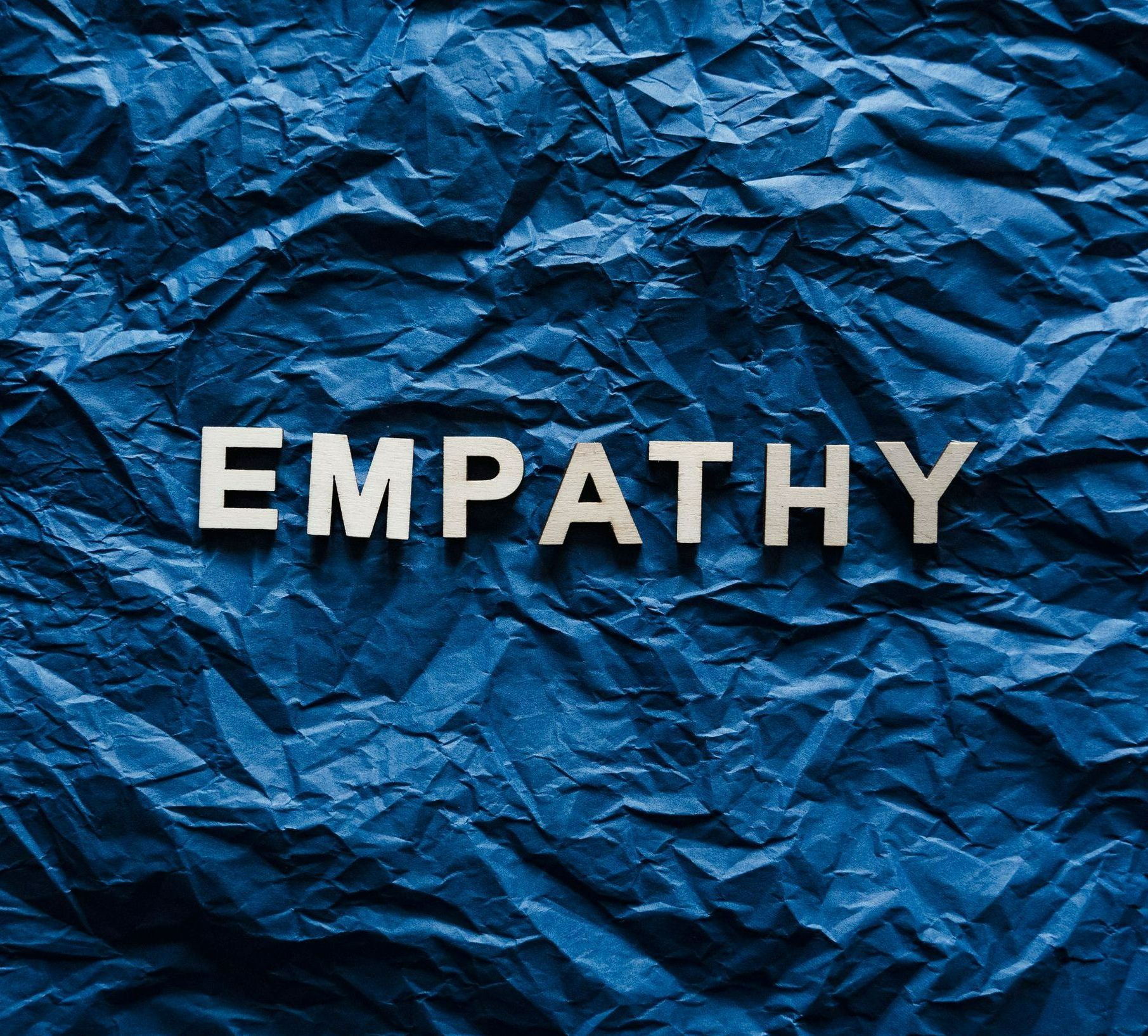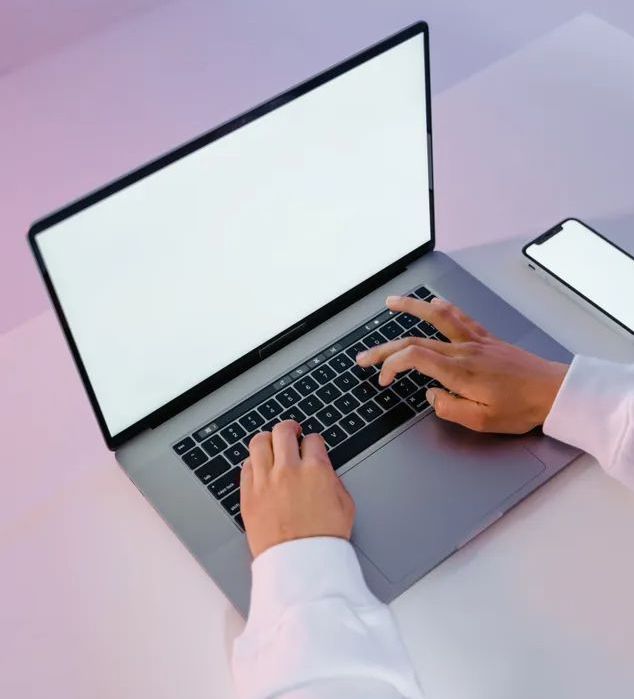Why Empathy Is Important and How Not To Let It Overwhelm You
We Need Empathy in Our World

Let's face it, sometimes life is tough. We will face challenges and upheaval. There will be occasions when we feel unheard. So when somebody shows up and allows us to feel seen or understood, it means a lot.
You might have seen empathy labelled as a superpower or as a soft skill prized by recruiters. We could all do with more of it in every aspect of our lives.
But what happens when our empathy for distressing events in the news engulfs us? What do we do when we feel powerless to help a friend in trauma? How do we find a healthy level?
What Is Empathy?
It can be mistaken for sympathy, but empathy is not just about feeling sorry for someone. Empaths put themselves in the shoes of another to understand their experiences or viewpoint.
Why Empathy Is Important?
We're more connected than ever with social media and modern technology, yet the world can still feel disconnected. Despite the 'be kind' mantra, intolerance and prejudice continue to breed. Empathy can build a bridge between our divisions. It enables us to be more open-minded to situations we're unfamiliar with.
Here are some other reasons why empathy matters:
Communication
We've all had those conversations with someone who only accepts their interpretation of a situation.
Perhaps you’ve missed a deadline at work, and you’re getting grief about it. It doesn't matter that you were waiting to receive some data, your child was sick, or you had to drop everything to help with another last-minute project. If your manager is not interested in hearing an explanation, you might think about looking for a job elsewhere.
Strengthening Relationships
If your boss had been more empathetic to the missed deadline issue, it could have been an opportunity to improve working practices. If your manager is approachable and willing to listen, you can build a rapport with them. You'll be more inclined to flag future delays and discuss workaround solutions.
We need connection. It's part of our humanity. If we're having a rough day, a friend who will let us vent without judging us can lift our spirits.
Team Building
Empathy builds trust, and when individuals feel confident to share their ideas, outside-of-the-box thinking and innovation can thrive.
Around 70% of employees participating in research for Businessolver’s State of Empathy Executive Summary Report believed empathetic organisations encouraged staff motivation.
Customer Engagement
Suppose you’re thinking about buying a dishwasher. You're in two minds, as space is limited, and you're unsure how eco-friendly they are. Your friend also complains that her dishes never come out the same as if she'd washed them by hand. But after hosting Christmas Day with the family and spending most of the day at the kitchen sink, you're almost swayed.
You start doing your online research into retailers and brands. You might be interested in dishwashers with eco features, learn about slimline versions, or how new technology leaves glasses sparkling.
Whether businesses sell dishwashers or doughnuts, empathy helps them know their customer. The seller can put themselves in the position of a buyer. They can identify the customer's needs and show why their product is the answer.
Empathy can also convey a human side of a business and establishes a connection with the customer. When you build empathy into your business, it supports engagement with your buyers and improves customer service.
Creativity
Empathy can be the stimulus for creativity. One study showed how teaching empathy in school corresponded with increased creativity.
Musicians, writers and artists often use their creative outlets to express empathy for a cause or viewpoint. Their messages can reach a wider audience, allowing others to empathise with the subject in focus.
When Empathy Becomes Overwhelming
Cultivating empathy is a trait we can all benefit from, but can you have too much of it? Here are some situations where this might show up:
Empathy and Guilt
Life for you right now is on an even keel, but a close friend or family member is going through difficulties. You might not be able to stop thinking about them and how awful their situation is. You feel guilty about how good things are for you.
Perhaps things aren’t so good for you right now, but your worries seem to pale in significance compared to theirs. In comes the self-reproach.
Feeling Powerless
It can be easy to get consumed by external events by watching daily stories of conflicts and disasters. News is accessible 24 hours a day. Reporters present the human impact of terrible events in graphic detail.
We need to be aware of what happens beyond our four walls, but constant consumption of news stories can lead our emotions into despair and pessimism.
Spreading Yourself Too Thin
If you’re an empath, you’re probably a good listener. Do you find occasions where everybody seems to need you as a sounding board? Of course, you want to be there for them. The downside is you might take on too much, depleting your energy levels.
The Need To Fix Someone
Do you feel like you should have all the answers? Do you feel a responsibility to solve another’s problem or situation? It might not be your responsibility or even in your capacity to do this, but you can't shake this need to do something. Perhaps others have come to rely on you to help them out.
Job-Related Stress
If you work in a profession such as healthcare, you may experience empathy-based stress from being exposed to secondary trauma from patients and their families.
You only have to think about the pandemic for an idea of what medical staff were facing each day. The pressure of caring for critically ill patients whose loved ones couldn't visit must have been intense. But you don't have to work in healthcare to experience empathy-based stress.
Empathy Fatigue
When this sets in, it can lead to:
- Burnout
- Resentment
- Detachment and withdrawal
- Less empathy for others
Tackling Empathy Overwhelm
There are areas you can focus on to keep your empathy at a steady level:
Self-Empathy
You might think empathy is only relevant in responding to others, but what about you? Do you show yourself empathy?
Self-empathy begins with self-awareness. You pay attention to your emotions and observe how situations affect you. You allow yourself a space to be truthful about your thoughts and feelings without judgment.
It can be challenging to sit with these emotions without reprimand and self-criticism. Empathising with others might be easier than acknowledging the discomfort within your personal sphere. But accepting your feelings and leaning into compassion will help set the tone for sharing empathy for others.
Compassion
Empathy is understanding another person’s situation or how they might be feeling. Compassion is the response that makes us want to help.
Cultivating compassion may alleviate empathy fatigue. If your best friend’s dad is sick, you can’t change the situation, but you can check in with her or offer practical help, such as watching her kids after school or picking up groceries.
Global problems such as the climate crisis are immense. The increase in climate-related events affecting populations worldwide brings home the stark reality of the situation. But moving beyond empathy to compassion motivates you to take action. You might not have agency in the big decisions, but taking steps towards living more sustainably or donating to organisations supporting a flood-stricken country helps you to be proactive.
Practising compassion doesn’t mean you have to fix everything. Remember to be compassionate to yourself too. But having the desire to help can lessen the negative emotions triggered by empathy.
Setting Boundaries
Emotional overload will leave you depleted of energy. Empathy fatigue can make you less empathetic. Without limitations, you won't do yourself or those around you any favours.
Restrict the amount of news you watch to prevent feeling weighed down by it. If you're spreading yourself too thin, know your limits and when to say no to requests. Be clear on where your responsibility for someone else's situation stops.
Understanding your triggers will help you regulate your emotions. You'll be able to establish practices to retain a healthy balance in your empathy levels.
Self-Care
Taking time for yourself is not selfish. Keep saying this to yourself until it sticks. I still need regular reminders, but I also know what happens if I don’t take some solo time to catch my breath.
If you're running on empty, you won't be able to show up for others as you'd like. All it does is perpetuate the empathy guilt cycle.
When To Reach Out
If you’re frequently experiencing empathy-based stress, it could indicate hyper-empathy. Talking to a professional may help you balance your emotions.
Embracing Empathy
Empathy gives us an understanding of other viewpoints. It helps us learn and grow. It allows others a space to feel heard. It’s a gift that costs nothing but time and an open mind. It’s a trait humanity needs.
But we also need to hold a place for self-empathy and acknowledge we can’t take on all the world’s problems. We need to understand our boundaries, and if we can do this for ourselves, our empathy for people will thrive.

About Me
Thanks for reading! I’m a freelance content writer, and I love writing blog posts. If blog writing is your least favourite aspect of your job, I’d love to help.









